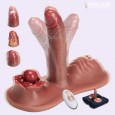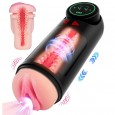Categories
- Anal Toy
- BDSM
- Bestsellers
- Boring Sex Life
- Couples Sex
- Dildos
- Female Arousal Issues
- Female Sex Toys
- LGBT Sex Toys
- Loose Vagina
- Male Sex Toys
- Masturbators
- Mini Vibrator
- Pain During Intercourse
- Poor Erection
- Premature Ejaculation
- Sex Gift India
- Sex Toys For Women
- Sexy Lingerie
- Strap on Vibrators
- Sucking Penis
- TAG
- Vibrator Sex
- Vibrator Sex Toys
- Vibrators
- Lesbian Sex Toys
- Mini cup
Latest
₹8,999.0 ₹18,999.0
Tags
How To Use A Vibrator how do flavored condoms work how to increase pennis size in hindi What are anal beads how to arouse a man in bed How to use a vibrator and sex toys the right way how do girls masterbate how to increase penic size at home best lubricant for sex How To Increase Pennis Size In Home use of cock ring how to increase cock size pocket pussy india how to use a cock ring what is cock ring how to use cock ring glass dildo Fake Pussy male masturbation techniques buy cock ring







